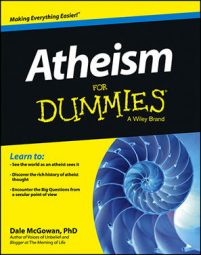How and whether to come out depends on many things, including whether an atheist is a dependent minor or self-sufficient adult. The thought of losing valued relationships or even being shunned completely by family and friends is painful and frightening.
Whether you’re coming out as a nonbeliever or think you may have a family member who is, here are a few thoughts to remember:
Coming out is a personal decision. No one should force an individual into or out of it.
If you’re coming out as an atheist and anticipate a bad reaction, be sure to establish a supportive community first —friends, selected family members, online, and so on.
If you’re coming out as an atheist to loved ones, let them know that most of who you are hasn’t changed. You still feel, value, hope, care, dream, act, think, and love as you did before. And if you want to have your choice respected, let them know clearly that you respect their own choice to believe, even if you question the beliefs themselves.
Take one step at a time. The moment you come out isn’t the best time to get into a point-by-point refutation of the family religion. Focus on the relationship first.
If you’re religious, and a loved one comes out to you as an atheist, know that she may assume the worst. Let the person know that you still respect and love her as an individual, even if you disagree. You may be surprised over time how little has changed between you. And if you agree, tell her! It’s always a nice surprise.
Sometimes coming out is traumatic and results in broken relationships. But more often, it goes much better than people think it will.
Know that coming out normalizes disbelief, which makes it easier for others to do so. It also helps reduce the general fear of difference when a religious person learns that someone they know is an atheist.

